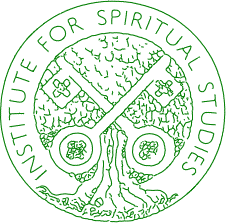
Seminar 7:
Looking back at the 20th century and forward to the 21st
Introduction to the 2000 seminar series
1 - The experience of God
(March 15)
2 - Shared traditions: Different paths
(March 30)
3 - Glory and flesh: The spirituality of John's
gospel
(April 13)
4 - Setting the agenda for society: Whose role?
(May 10)
5 - City churches as spiritual powerhouses
(June 3)
6 - Ecumenical vespers for the vigil of Pentecost
(June 10)
7 - Looking back at the 20th century and forward to the
21st
(July 8)
8 - "The touches of sweet harmony" A celebration of JS Bach's
church music
(August 5)
9 - Homosexuality in Christian tradition
(August 23)
10 - Tour of Orthodox churches and their icons
(September 9)
11 - 'Two steps forward: one step back': Anglicans and Roman
Catholics in dialogue
(October 7)
THE SPIRITUAL VIEWPOINT - CULTIVATING PEACE
Reflecting on the 20th century, one cannot avoid such events as the holocaust, world wars, the nuclear bomb~on a summer's morning in Hiroshima. As a new millenium dawns, there are no dominant ideologies. Communism, fascism, capitalism and fundamentalisms of various kinds, have all failed to deliver the world's potential for beauty. The idea of ideological resolution is discredited as conflict continues.
An authentic, transformative and less dogmatic spirituality should be both appealing and helpful. But can this be Christian? Can the Church be freed from its fixation with certainty, to be a humble vessel for a reconciling culture of peace? What might this look like in terms of day to day spiritual practice? Such questions confront us if we are not merely to roll the unGodly past into the future.
| Conductor: | Right Revd Philip Huggins, Bishop of Grafton |
|---|
AUSTRALIAN SPIRITUALITY: AN HISTORICAL PERSPECTIVE
Australia, as a new settler society, has tended to be characterised by historians as a materialist, male-oriented culture. Yet the churches and religion have played an important part in the process of settlement and the spread of 'civilised' values. Questions to be considered in this session in an historical context include the inheritance of mateship, perceived Australian reticence in the expression of emotion, Anzac as a form of civic religion, and the recent trend towards the appropriation of Aboriginal culture and spirituality.
| Conductor: | Professor John Rickard, honorary Professorial Fellow, Monash University, where he is attached to both the History Department and the National Centre for Australian Studies |
|---|
THE FEMINIST VIEWPOINT - FEMINISM AND THE ANGLICAN FUTURE
When women were first ordained, some Anglicans hoped or feared that it would change the church radically, others that business would continue as usual with a few more hands on deck. In 2000, feminism may no longer be centre stage, but it has not fizzled out. It is still fermenting faithfully, renewing the church from within. In this session, we will look forward more than we look back. What is happening in feminist theology and biblical studies? What are feminists doing about pastoral care, liturgy, social justice, and evangelism? How can people who have had little contact with feminism tap into some of this energy, and make use of these insights to enrich the church?
| Conductor: | Revd Dr Elizabeth Smith, Area Dean, Glen Eira |
|---|
| Date | Saturday 8 July |
|---|---|
| Time | 10 am - 3.30 pm |
| Venue | St. Peter's, Eastern Hill, Melbourne |
| Cost | $30 (includes lunch) |
Don't miss out - fax or mail the booking form today!
Authorised by the Vicar (vicar@stpeters.org.au)
and The Institute for Spiritual Studies (iss@stpeters.org.au)
Maintained by the Editor (editor@stpeters.org.au)
© 2000 The Institute for Spiritual Studies